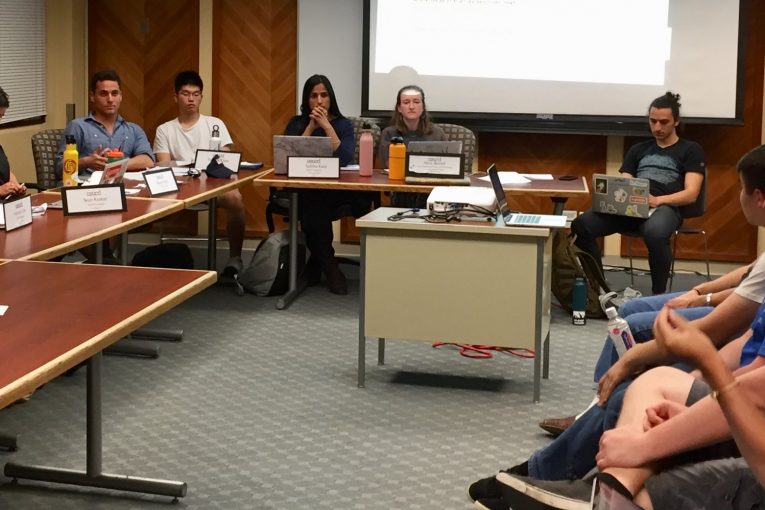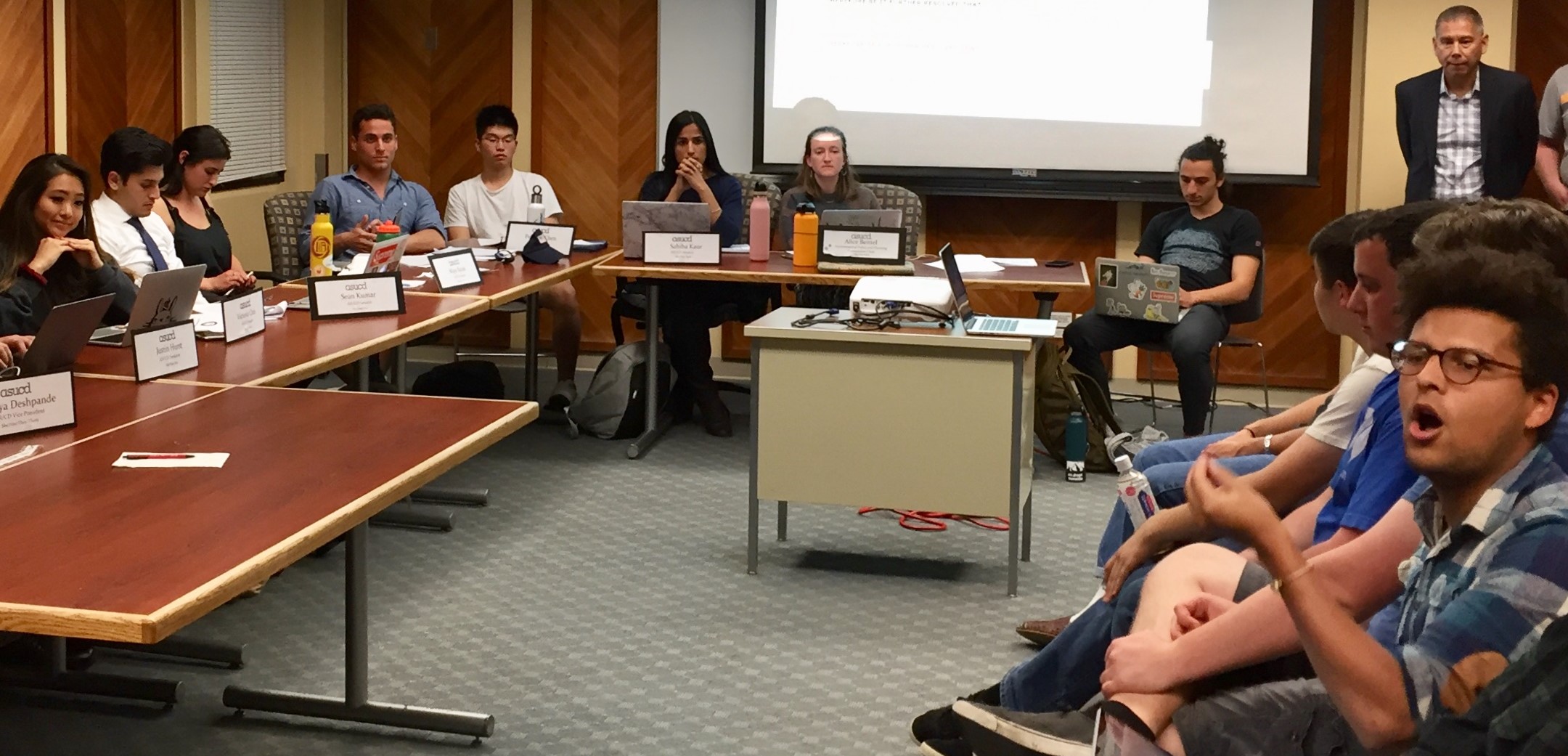

By Raquel Victoria Navarro
Vanguard Staff
DAVIS — Exhausted students finally filed out of an Associated Students of University of California, Davis meeting very late Thursday night, after weeks of anticipating the passing of Senate Resolution 10, which urges the University of California Office of the President to disarm UC police.
Student community leaders voiced their support for this resolution to “disarm its campus police of all lethal and military-grade hardware” and permanently refuse to participate in the “1033 program,” which under the 1997 National Defense Authorization Act allows the Department of Defense to grant local law enforcement military-grade weaponry.
After a lengthy session of public and senator comments, the resolution failed to pass on a 6-5 vote.
The passage of the resolution would have followed a trend of other public universities – like the University of Oregon, Portland State and Associated Students of UC Santa Barbara – that call for the disarming of campus police,
“It’s not that radical. Many people share the idea that campus police should not be armed with lethal force, but the biggest barrier to taking those steps is framing of the language to help people better understand the issue. We aimed to come from a sociological perspective, speaking to broad trends of policing around the nation” said Blu Buchanan, who authored the resolution and presented it with the Ethnic and Cultural Affairs Commission.
Buchanan – a sociology graduate student at UC Davis and key organizer in Students and Workers Ending Racial Violence  (SWERV) – is researching the effects of the 1033 program in local communities.
(SWERV) – is researching the effects of the 1033 program in local communities.
SWERV said the UCD resolution has been part of a campaign to disarm campus police that started in 2015 after the killing of Michael Brown and the non-indictment of the police officers who killed Eric Garner.
Although this action is a response to racial violence nationwide, UC Davis is no stranger to police brutality against student organizers and students of color.
SR10 cites the “Picnic Day 5,” when black students were harassed and threatened with lethal force by Davis police during Picnic Day, and recent instances in which the police have failed to protect student organizers of color from “Blue Lives Matter extremist” death threats.
These examples and the infamous pepper spray during an Occupy incident authorized by former chancellor Linda Katehi, in which unarmed student protestors occupying the main quad were sprayed in the face with pepper spray by campus police are further inspiration for the resolution.
UCD Police Chief Joseph Farrow attended the meeting at the request of the President of ASUCD and spoke to these events.
“I apologize about the Blue Lives Matter incident; I’m not very sure what happened in that situation and the Picnic Day incident is an ugly period in our department’s history” said Farrow. “We are a department that is in transition; we are trying to create a model department out of UCDPD.” He also noted that campus police carry Glock 27 handguns in addition to other weapons.
“Unfortunately, student government does not have unilateral power over what happens in our university, but you do have the power to advance certain causes, and this resolution has the necessary teeth to ensure reform. This is the first step in better police accountability and procedure on this campus, and delaying this has delayed any progress in that direction” said political science major Hassam (declined to give full name) in the audience.
Once it was determined that the resolution did not pass, the entire student audience and some senators gave Buchanan a standing ovation for their presentation of the resolution, chanting “No justice, no peace!”
“What type of example are we setting for the other UC campuses if we can’t fully support the safety of the students of color we are supposed to represent?” asks Shreya Deshpande, ASUCD Vice President.
Passage of SR10 would have been essentially a statement urging the UC Regents and Office of the President to disarm campus police as well as work to implement the structural framework for “community-based responses” to threats on campus, and engage the University of California in a revolutionary move.
However, it is unclear whether a #DisarmUC campaign will gain traction because it appears UC Davis has, thus far, officially chosen to close the conversation on campus police access to lethal force and further militarization.

While I’m very critical of the police, this is a bridge too far for me. Cops need to have guns to do their job in this time and age.
Here, we are just talking about disarming campus police.
How are the police to “protect” anyone from death threats? Were these on-line death threats? What is the percentage of people who receive death threats on-line that are actually killed?
How you phrase it as a opinion piece headline writer when you really really really wanted it to pass.
Same, as an opinon piece writer.
Yep…